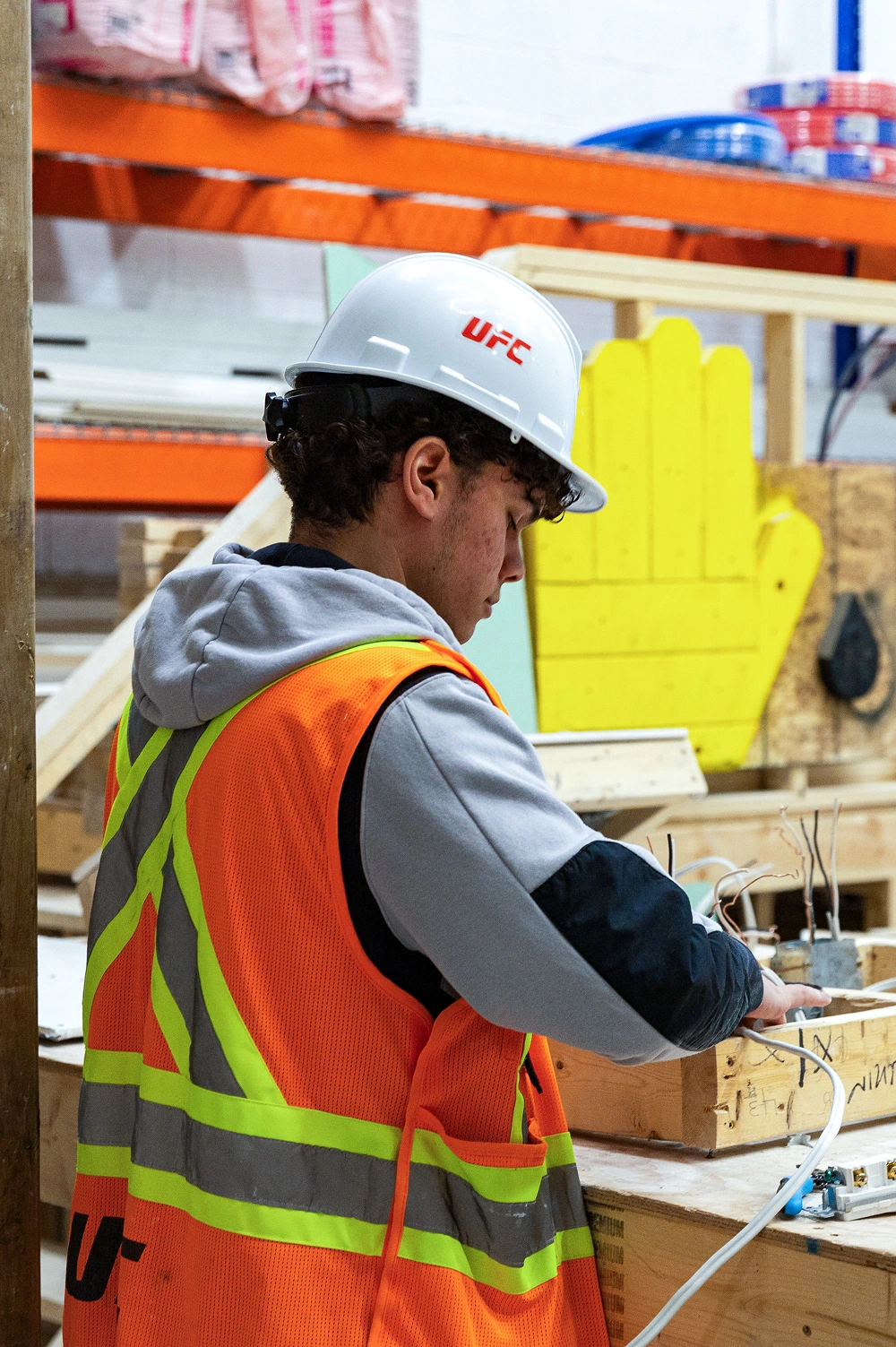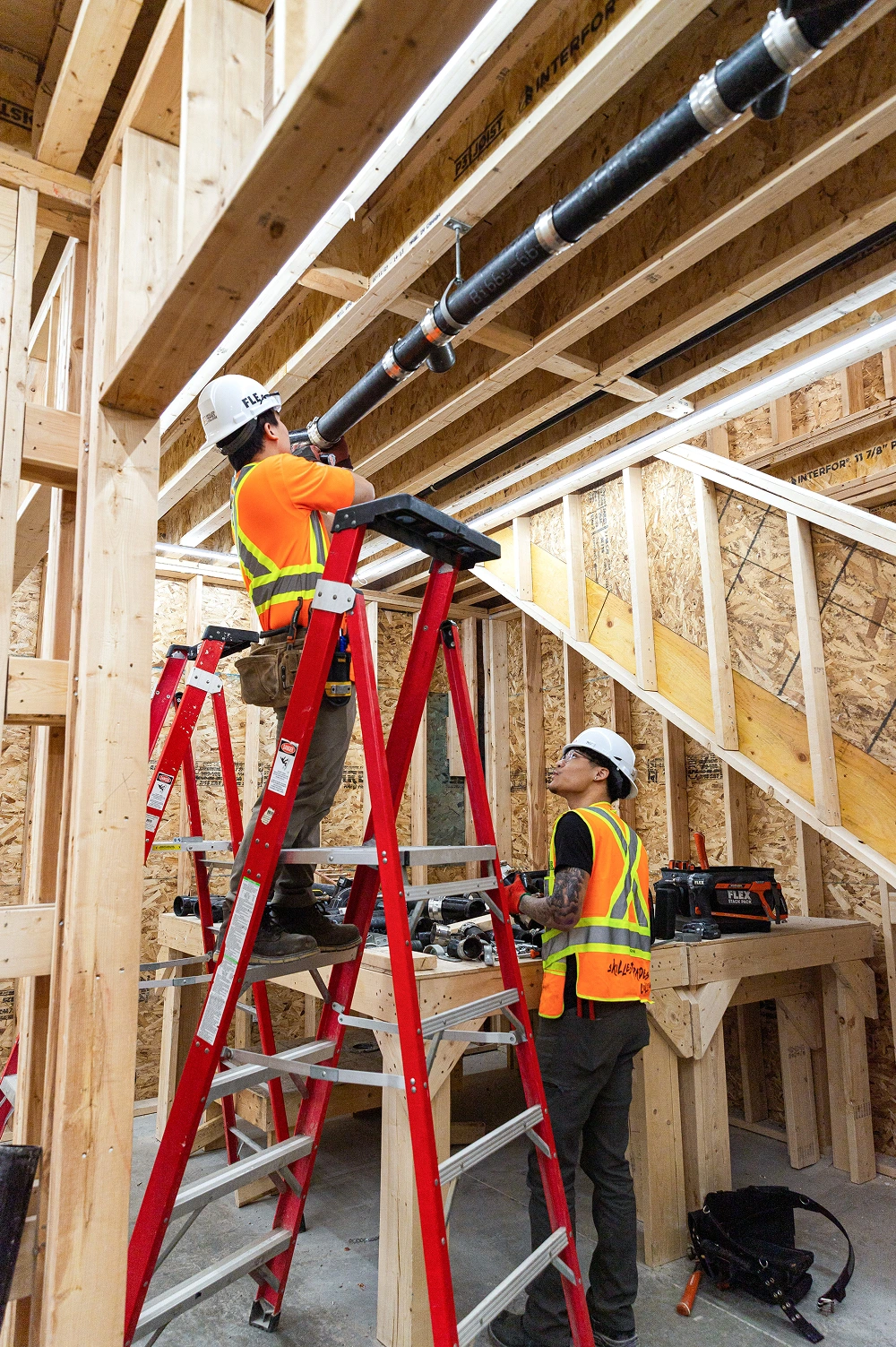How to Turn Your DIY Skills into a Skilled Trades Career Path

Published On
12-10-2023
.png)
Starting a construction business in Ontario isn’t easy, but it's definitely possible. Just ask former Skilled Trades College alumni Mardie Reyes!
He completed the plumbing program at STC and learned “the skills to pay the bills” in the construction industry and beyond. In addition to founding his own company, he hired three talented graduates from the same program.
If you're thinking of following in Reyes' footsteps and turning your skills into a profitable construction career, you’ve come to the right place. In this blog, we'll give you some tips and advice on how to start a construction business in Ontario, from registering your business name to getting the right permits and licenses.
We know you’re excited to build your construction empire, so let’s lay the foundation by choosing your niche and target market.
The construction industry is full of opportunities, and there are countless avenues for you to explore. Ask yourself: Do you see your business working on residential projects or commercial buildings? Maybe you’re more interested in specialized fields like plumbing, electrical work, or renovation.
Whatever your answer, take the time to research each possibility and consider their potential for long-term growth.

Now that you’ve got your niche in mind, it’s time to put those ideas on paper. A business plan is a comprehensive document that outlines your business strategy. Think of it as the blueprint of your construction venture that will help you clarify your business goals, strategies, and operations.
In your business plan, you’ll set up your business structure, prepare your marketing plan, and create financial projections. You also don’t want to neglect market research. You’ll need this to understand your target customers and industry trends and iron out your competitive advantages against local competitors.
If you’re unsure how to write a solid business plan, here’s a great resource from the Business Development Bank of Canada.
You have a game plan. Now what?
The next step is to make your construction company official. You wouldn't build a house without the proper permits, and you shouldn't run a business without proper registration.
Choose your legal structure—whether you're a sole proprietor, in a partnership, or incorporating your business. Then, register your business using the Ontario Business Registry through the ServiceOntario website or by mail.
If you're going to use a different business name, make sure it's registered too.
Every Canadian province and territory has specific requirements and regulations for businesses, and the same goes for Ontario. To get your construction activities started, you need to secure the proper permits and licences to operate your business.
Depending on your specific trade and the scope of your construction company, you may need different business permits. Don't start a construction project without checking this off your list.
Safety first! Just like wearing your hard hat on the job site, protecting your new construction business is necessary.
.png)
Here are some key types of insurance policies that construction companies typically need:
Out of these, you’re required by law to have Commercial General Liability Insurance. You also need to register with the Workplace Safety and Insurance Board (WSIB) for mandatory insurance coverage of your workers if you hire employees.
The rest depends on your specific operations, such as whether you have a physical office or company vehicle (in which case you’ll need property insurance and commercial auto insurance).
Separate your personal finances from your business earnings by setting up a dedicated business bank account. This not only keeps your finances organized but also ensures you're managing your money properly. Use this to keep track of your cash flow, income statements, and expenses.
Every business requires funding to get off the ground, and your new construction company is no different. Whether you're financing construction equipment, licenses, insurance, or marketing efforts, you'll need capital to get things rolling.
You can use your personal assets, or you can secure funding from loans, grants, or investors. Another option is to explore potential government funding opportunities available to new businesses in the construction sector.
You can build a house by hand—but it’s so much easier with tools. If you want to deliver quality services, you’ll need the help of quality tools and equipment. So, invest in the necessary construction equipment and supplies to carry out your projects efficiently and effectively.
Consider both immediate needs and long-term needs. You can start with the essentials to kickstart your construction company first if you don’t have enough money to invest right away. Then, plan for the future by investing in high-quality, durable equipment that will serve your business for years to come.
Now that you've got the groundwork laid, it's time to let the world know about your construction company. We understand that marketing is not fun for everyone, but it’s necessary to promote your brand and attract customers.
To do this, you can either develop a marketing strategy yourself or hire an agency to do it for you. You also need a great sales strategy to help convert your marketing prospects into paying customers.
.png)
As your construction business grows, you may need to hire employees to tackle larger projects. Building a skilled and reliable team is crucial for your business’s future success, but it’s also one thing that a lot of business owners struggle with.
According to Reyes, “The most challenging part after opening the business was finding people that I could trust, and the level of skillsets that they know.”
One way to build a skilled team is to hire graduates from reputable trade colleges, such as the Skilled Trades College of Canada. STC provides students with practical and theoretical training in plumbing, electrical, and home renovation. Graduates from STC have the skills, confidence, and safety knowledge to meet the needs of their employers and succeed in the construction industry.
The construction industry is ever-evolving, and staying on top of trends, technology, and regulations is crucial if you want your new business to stay afloat for a long time. Consider expanding your skills and knowledge through additional courses and certifications to remain competitive.
If you want to follow Reyes' footsteps and learn how to start a construction business in Ontario, you can enroll in a Skilled Trades College of Canada pre-apprentice programs.
You'll learn from experienced instructors who will prepare you for the real-world challenges of the construction industry. You'll also get access to facilities, equipment, and materials that will help you master your trade.
Ready to develop your trade skills and turn it into a profitable career? Contact us today!
9,281+
LIVES CHANGED

12,481+
WIRES PULLED

85,382+
2X4'S CUT

9,756+
PIPES LAYED

9,281+
LIVES CHANGED

12,481+
WIRES PULLED

85,382+
2X4'S CUT

9,756+
PIPES LAYED

9,281+
LIVES CHANGED

12,481+
WIRES PULLED

85,382+
2X4'S CUT

9,756+
PIPES LAYED
